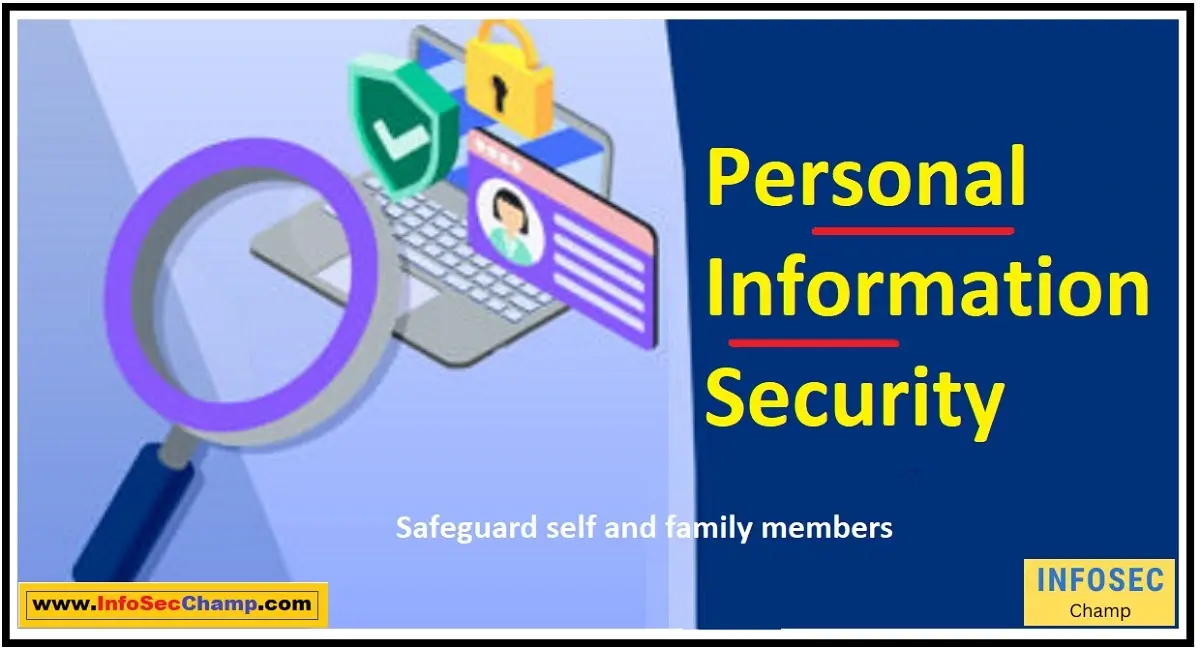In the modern digital era, personal information security is of the utmost importance, particularly when it comes to safe mobile communications. It can be difficult to educate your family members about online safety, especially if they are not tech-savvy. Simplicity and relevancy are essential components of an effective personal information security education program for your loved ones.
You may assist your family members in defending themselves against potential internet dangers by outlining the fundamentals of online safety and offering easy-to-implement practical advice. Keep in mind that even the tiniest precautions can have a big impact on protecting the online privacy and personal information of your loved ones.
The best way to teach family members about information security is to keep things straightforward and applicable | Personal information security
Here are a few pieces of advice on personal information security:
- Passwords: Explain the value of strong passwords to your family members and encourage them to make unique passwords for each of their online accounts. To make this procedure simpler, demonstrate to them how to use a password manager.
- Phishing: Inform your loved ones of phishing scams and teach them how to spot shady emails or communications. Inform them not to open attachments or click on links coming from unauthorized sources.
- Social media: Discuss with your family the dangers of divulging too much personal information online. Remind them to check their privacy settings and to be wary of accepting friend requests from unknown parties.
- Software updates: Stress the value of maintaining updated operating systems and software, as these upgrades frequently include security patches that can guard against vulnerabilities.
- Backups: Instruct your family members to periodically make copies of crucial documents and data so that they may be restored in the event of a security breach or computer malfunction.
- Public Wi-Fi: Educate your family members to use caution while connecting to insecure public Wi-Fi networks because hackers can quickly compromise these networks. Urge them to utilize a mobile hotspot or a virtual private network (VPN) to access private data when using a public Wi-Fi network.
- Two-factor authentication: Teach your family members how to set up two-factor authentication on their accounts, which adds an additional layer of security by requiring a different form of identification in addition to their password (such as a code delivered to their phone).
- Physical security: Encourage your family members to take physical security into consideration as well. For instance, they ought to refrain from writing down passwords or leaving their gadgets unattended in public.
- Fraud and scams: Inform your loved ones about common fraud and scam techniques, like making phony tech support calls or sending phony emails purporting to be from a reputable company. Instruct children to confirm the legitimacy of any communications they receive before responding or divulging any personal information.
- Ongoing education: Last but not least, stress the value of continuing education and keeping up with the most recent risks and information security best practices. Encourage your family to read up on security-related news and, as appropriate, attend training sessions or webinars.
- Social engineering: The idea of social engineering, which entails coercing people into disclosing private information or carrying out certain tasks, should be explained to your family members. Inform them to be on the lookout for unauthorized calls or emails that ask for personal information or money.
- Privacy settings: Reviewing their social media accounts, gadgets, and any third-party apps they use, your family members should be advised to review their privacy settings. Teach them how to change these settings to reduce the quantity of private data shared.
- Safe & Secure browsing: Promote safe browsing habits among your family members by telling them to stay away from dubious websites and use browser add-ons that block adverts and trackers.
- Email security: Educate your family members on how to recognize suspicious emails, such as those that have spelling or grammar issues, odd attachments, or requests for personal information. Teach them to verify the sender’s email address to make sure it is accurate.
- Mobile device security: Make sure to emphasize how crucial it is to protect all types of mobile devices, including tablets and smartphones. Urge your family members to secure their devices with a PIN or password, install antivirus software, and perform regular software updates.
- Wi-Fi network security: Inform your family members of the importance of Wi-Fi network security and demonstrate to them how to protect their home Wi-Fi network by using a strong password and turning on encryption.
- Data encryption: Describe the idea of data encryption, which entails encrypting information so that only authorized individuals may read it. To protect sensitive data, such as financial or medical records, encourage your family members to use encryption technologies.
- Avoiding public computers: Tell your loved ones to stay away from utilizing shared or public computers or gadgets for private tasks like online banking or shopping. Some gadgets can have malware or keyloggers installed, which might record private data.
- Cyberbullying: Talk with your family members about this problem and encourage them to report any incidents of online bullying or harassment. Demonstrate to them the social media platforms’ blocking and reporting procedures.
- Physical security: Encourage your family members to take physical security into consideration when using electronic gadgets in public. They ought to refrain from entering passwords or other confidential information when others may see their screen, for instance.
- Cloud security: Educate your family members about cloud security and persuade them to adopt safe cloud storage options for critical files and data. To protect their cloud accounts, demonstrate to them how to utilize two-factor authentication and strong passwords.
- Device updates: Stress the value of keeping devices up to speed with the most recent software patches and security fixes. Urge your family members to regularly check their devices for updates and to apply them as soon as they become available.
- Online shopping: Talk to your family members about safe online buying habits. Emphasize the value of using secure websites with “https” in the URL and avoiding transactions on unsecured networks like free Wi-Fi.
- Social media privacy: Remind your family members to be aware of their privacy settings on social media and walk them through how to change them to reduce the amount of personal information that is published. Warn them not to post private information or delicate material on social media.
- Strong authentication: Urge your family members to adopt robust authentication techniques for their internet accounts, such as physical security keys or biometrics. In addition to passwords, these techniques add another level of security.
You may support your family in practicing information security best practices by embracing these extra suggestions. Because cyber dangers are constantly changing, it’s important to be on guard and stay informed on the best security techniques; by this you can promote for personal information security.
FAQ:
What is the importance of personal information security in the modern era?
Answer: In the modern digital era, personal information security is of the utmost importance, particularly when it comes to safe mobile communications.
How can you educate your family members about online safety?
Answer: You may assist your family members in defending themselves against potential internet dangers by outlining the fundamentals of online safety and offering easy-to-implement practical advice. Keep in mind that even the tiniest precautions can have a big impact on protecting the online privacy and personal information of your loved ones.
What are the dangers of divulging too much personal information online?
Answer: Discuss with your family the dangers of divulging too much personal information online. Remind them to check their privacy settings and to be wary of accepting friend requests from unknown parties.
How can you protect your home Wi-Fi network?
Answer: Inform your family members of the importance of Wi-Fi network security and demonstrate to them how to protect their home Wi-Fi network by using a strong password and turning on encryption, for personal information security.
How can you promote safe browsing habits among your family members?
Answer: Promote safe browsing habits among your family members by telling them to stay away from dubious websites and use browser add-ons that block adverts and trackers for better personal information security.

